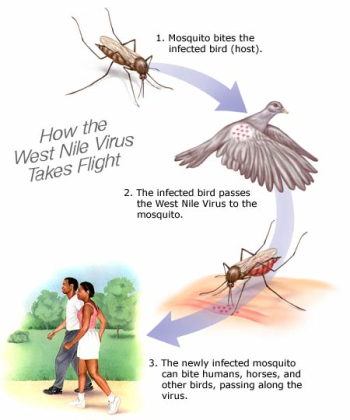 By Staff
By Staff
September 15th, 2020
BURLINGTON, ON
While Covid-19 issues keep the Public Health Unit very very busy, it also has to deal with other significant health issues.
A Burlington resident has tested positive for West Nile virus.
Halton Region Public Health has confirmed that a Burlington resident has tested positive for West Nile virus (WNV). This is Halton’s third human case of WNV this year; the first two positive test results were residents of Oakville.
“Halton Region Public Health continues to reduce the risk of West Nile virus in our community through education and preventative programs, such as larviciding. Until the fall frost, residents should keep using bug spray, remove standing water and avoid areas where mosquitoes are present,” said Dr. Hamidah Meghani, Halton Region Medical Officer of Health.
“While 80 per cent of people infected with West Nile virus will have no symptoms, others will have symptoms consisting of fever, headache, muscle ache and a rash. These symptoms are very similar to illnesses such as COVID-19, so it is important for residents seek medical assessment.”
Residents are encouraged to take the following steps to protect themselves and their families from mosquitoes:
 • Urban areas are more likely to have mosquitoes that carry WNV. Reduce mosquito breeding sites around your home at least once a week by getting rid of water in containers and objects such as wheelbarrows, tires, plant pots, old toys, plastic pails and wading pools.
• Urban areas are more likely to have mosquitoes that carry WNV. Reduce mosquito breeding sites around your home at least once a week by getting rid of water in containers and objects such as wheelbarrows, tires, plant pots, old toys, plastic pails and wading pools.
• Avoid areas where mosquitoes are known to be present such as wooded areas, golf courses or gardens, especially at dawn and dusk when mosquitoes are most active.
• If you are going to areas where mosquitoes are active, cover up by wearing light-coloured, long-sleeved shirts and pants with tightly woven fabric.
• Use a mosquito repellent (bug spray) containing DEET or Icaridin.
• Make sure your window and door screens are tight and without holes, cuts or other openings.
• Change the water in bird baths at least once per week.
If residents see standing water on public property for longer than a week, they can report it to Halton Region by emailing accesshalton@halton.ca or calling 311.
As part of its ongoing West Nile virus surveillance and larviciding program, Halton Region Public Health staff continue to monitor areas of standing water, eliminate potential mosquito breeding sites and apply larvicide when mosquito larvae is found during Regional monitoring and surveillance. For more information on Halton Region’s West Nile virus program, visit halton.ca.


















